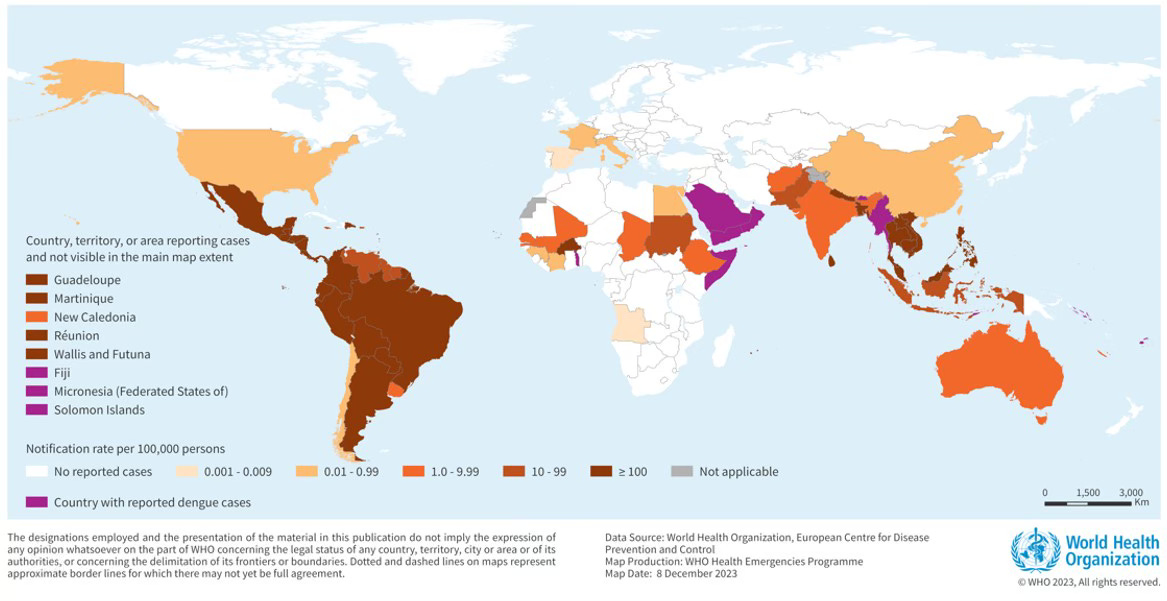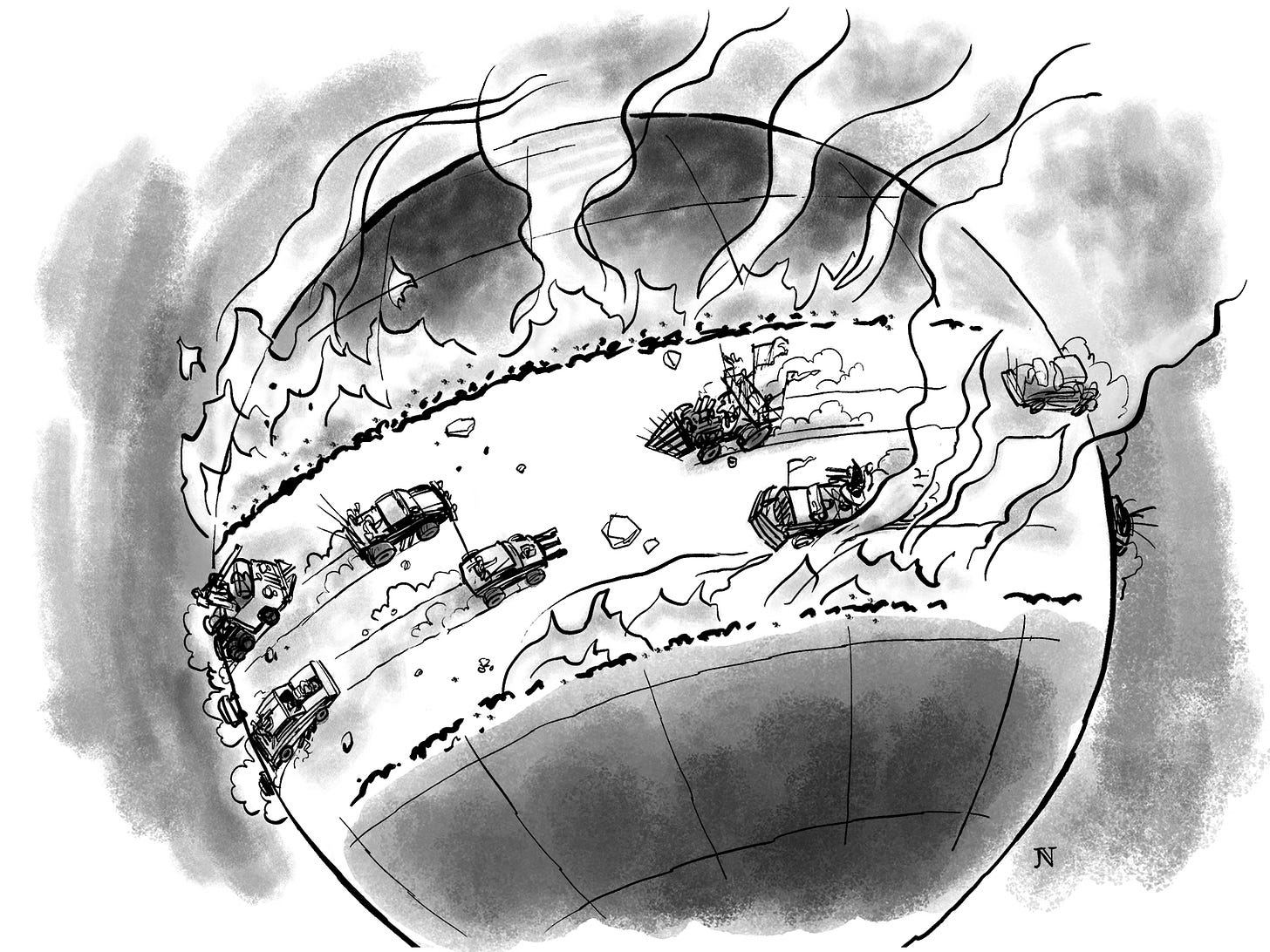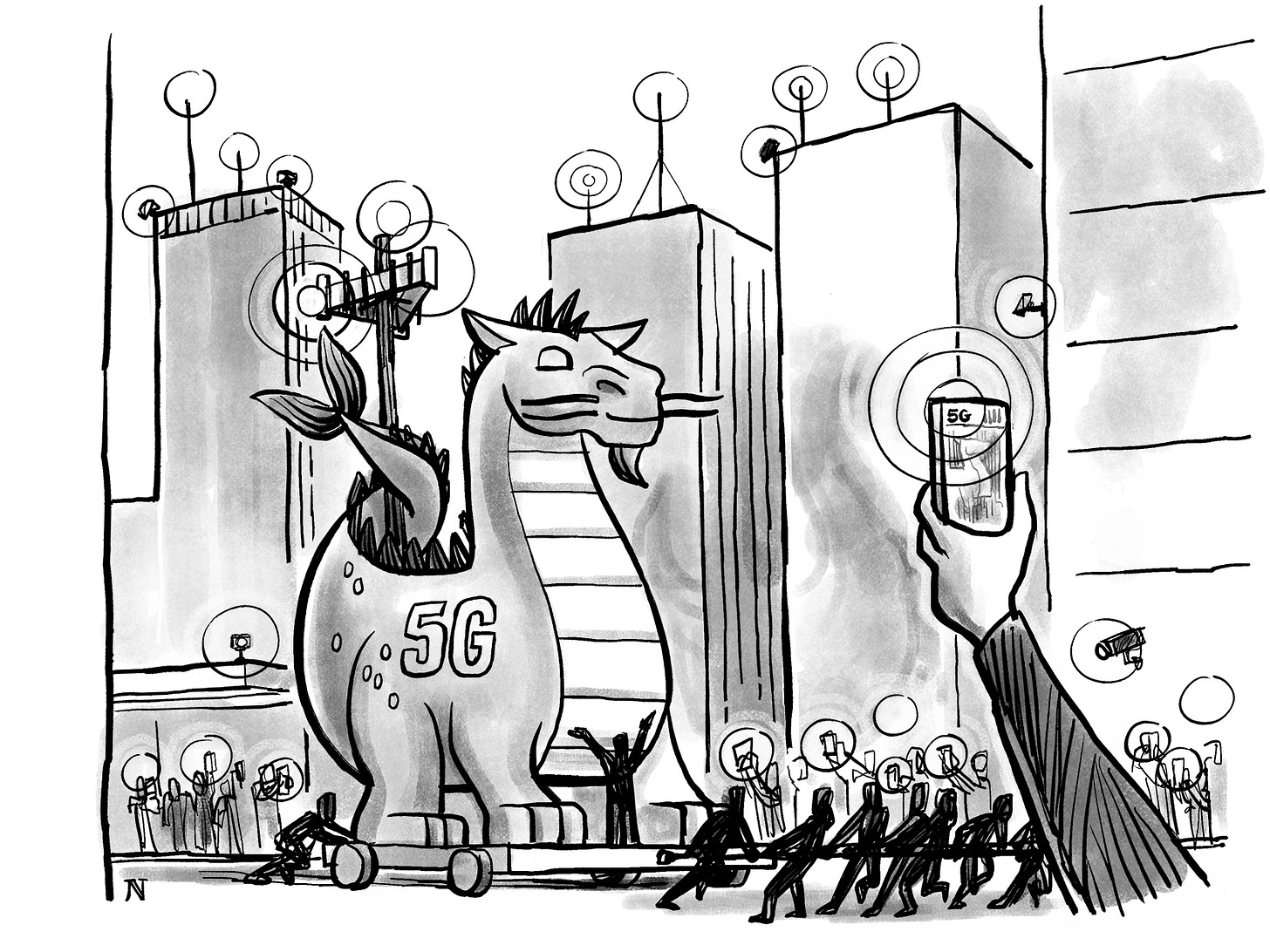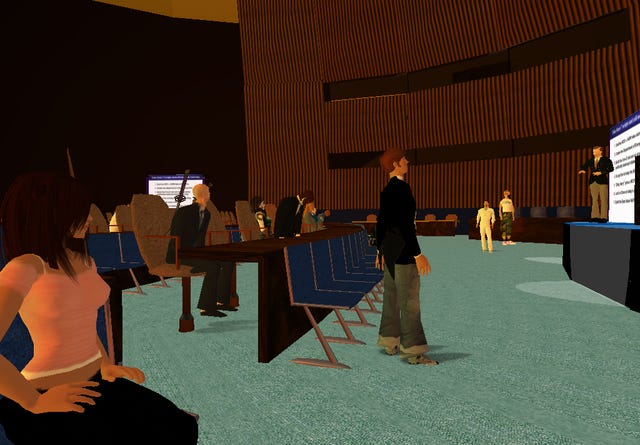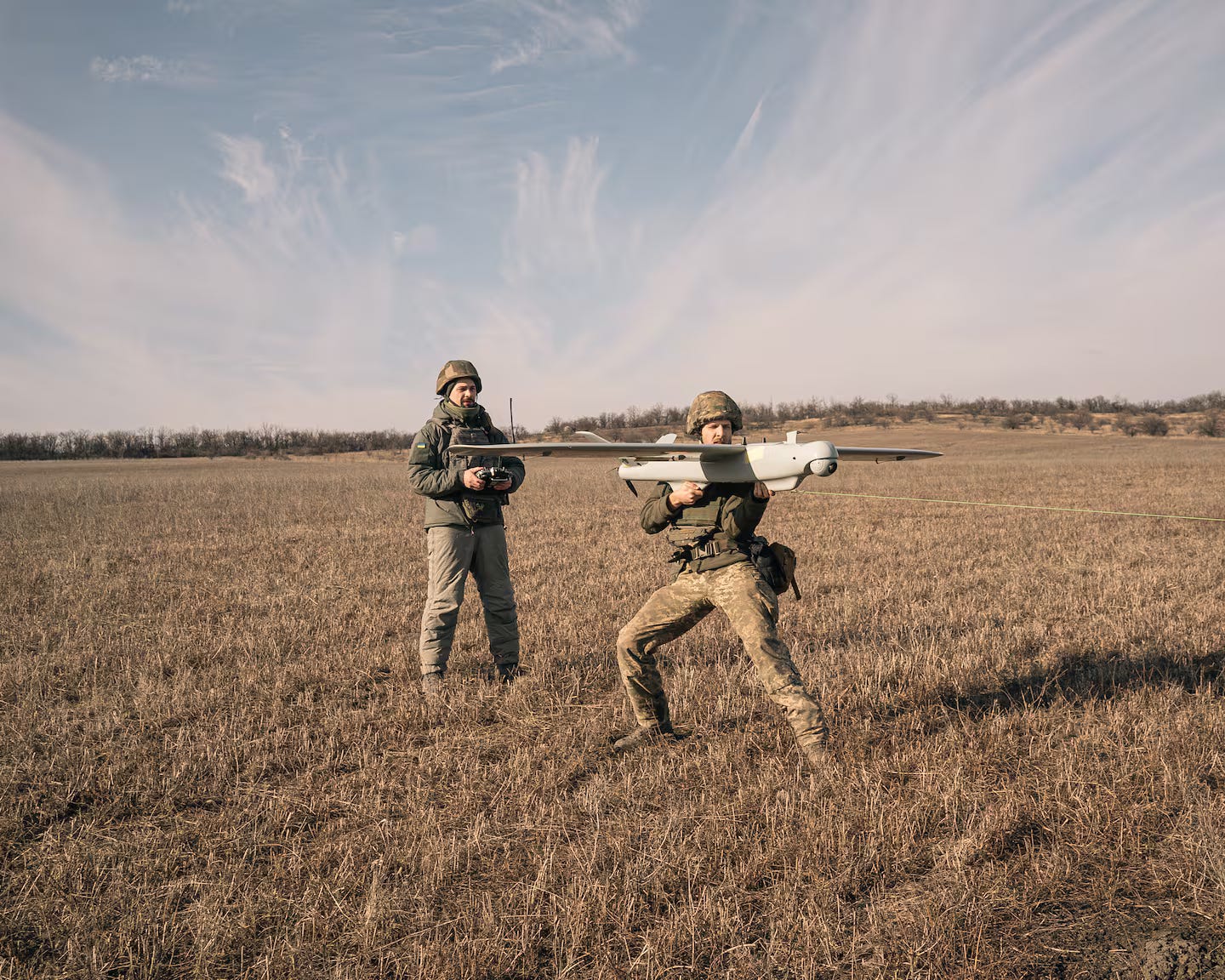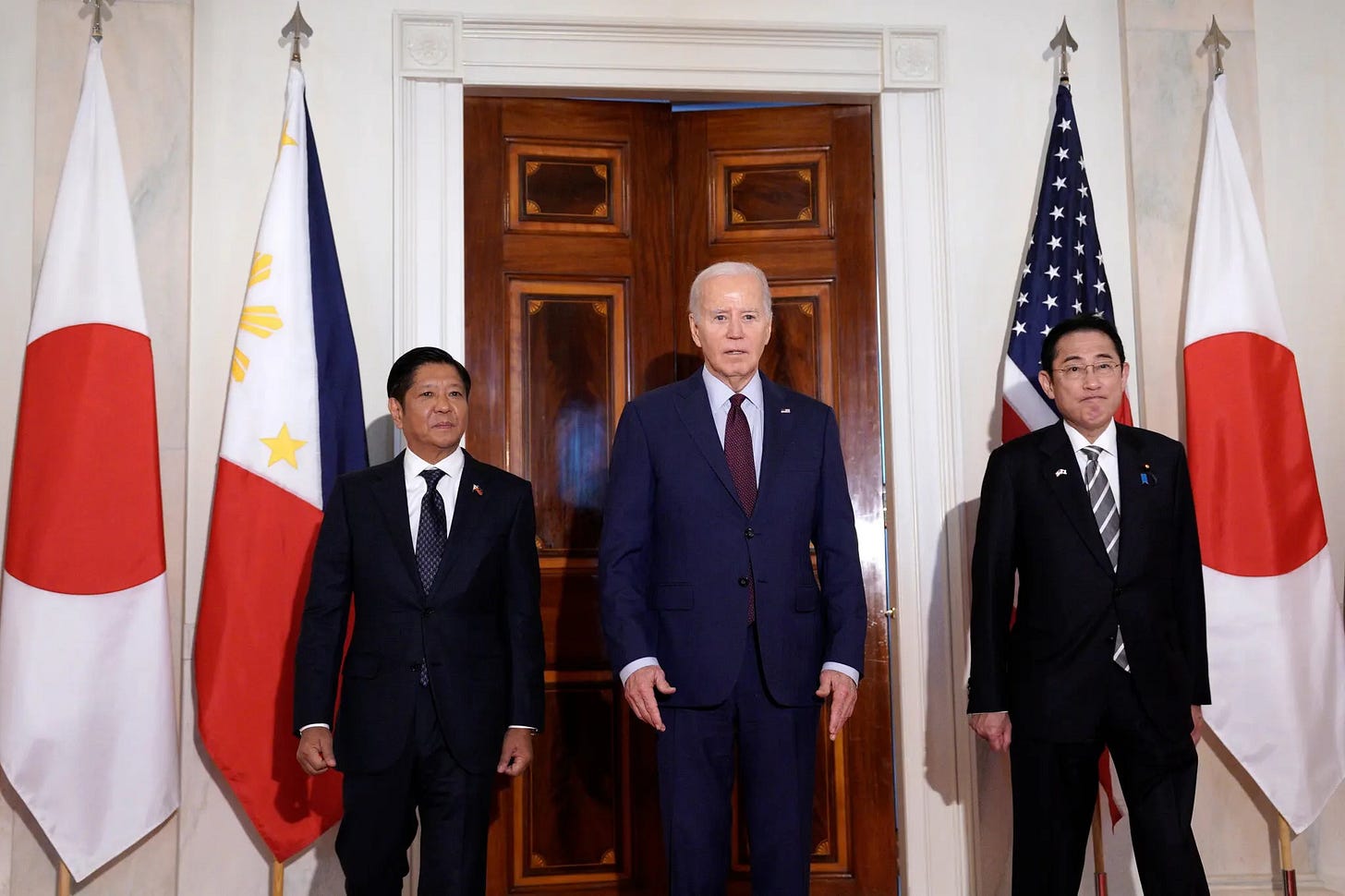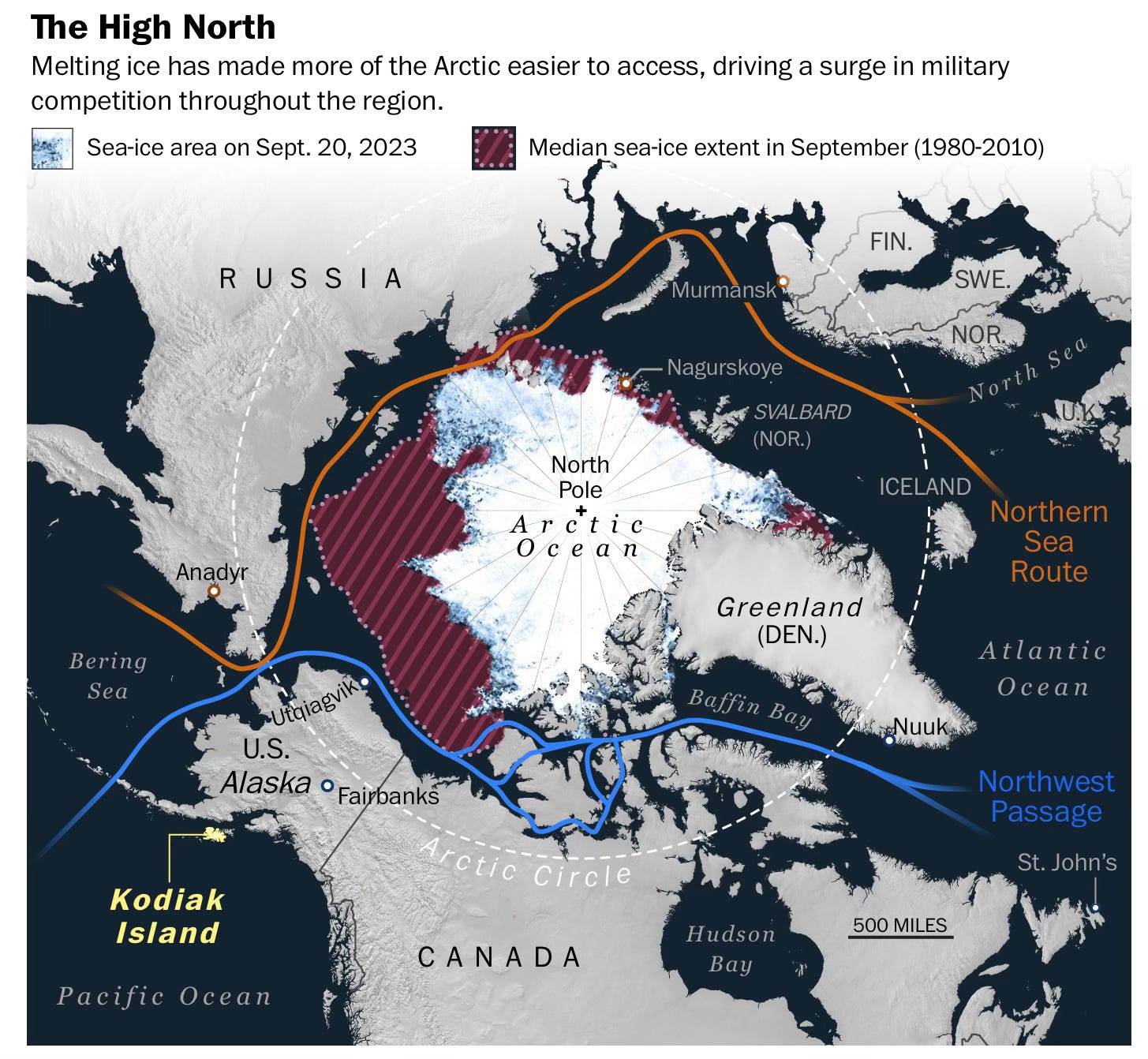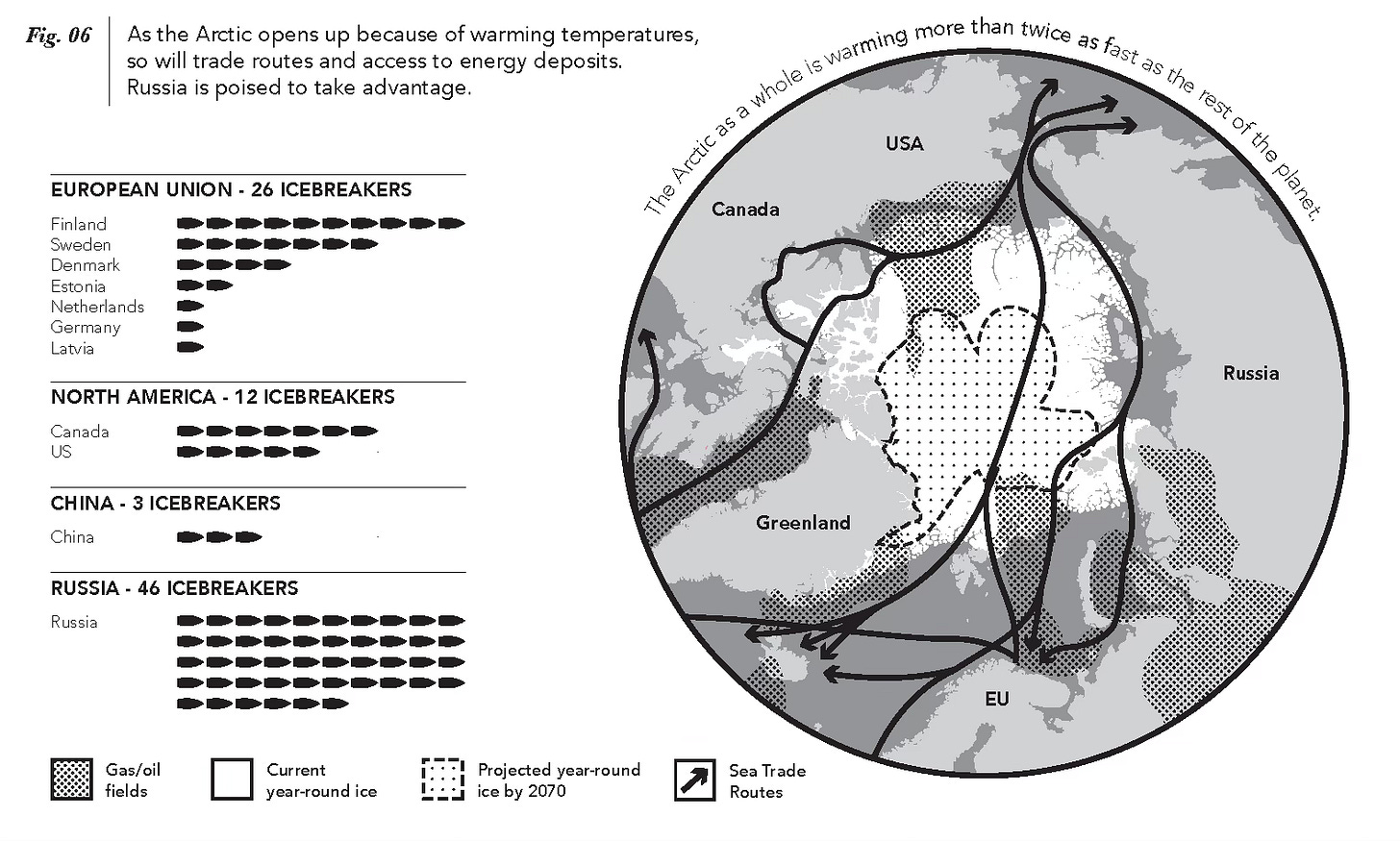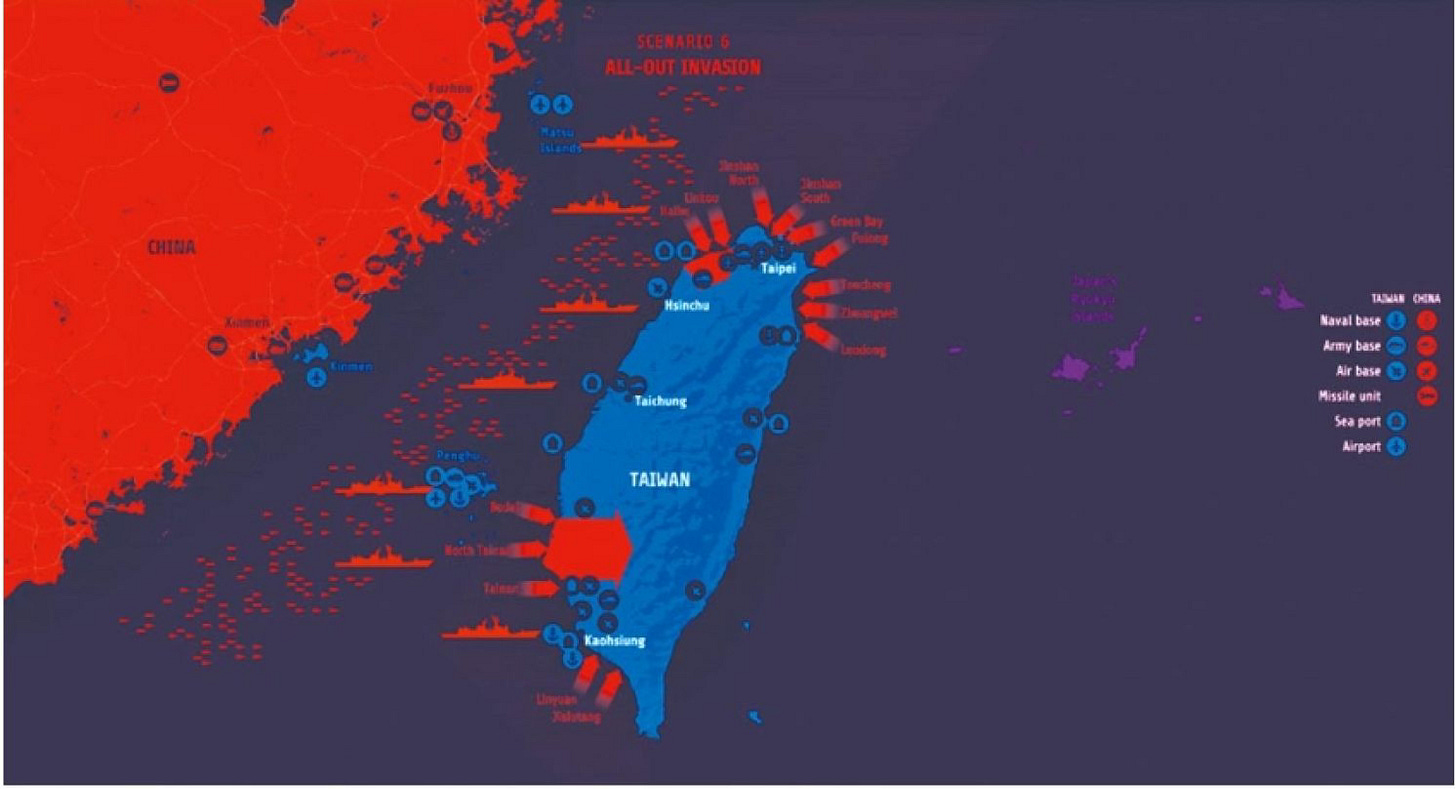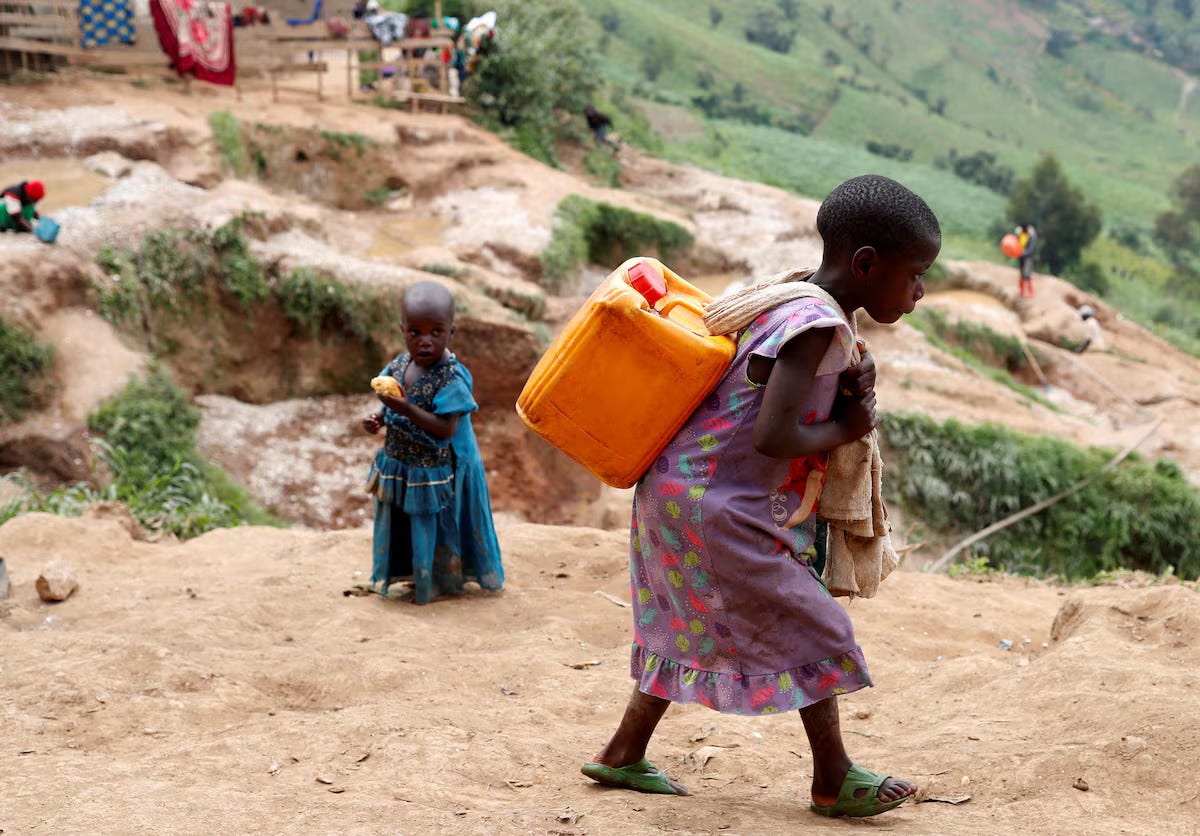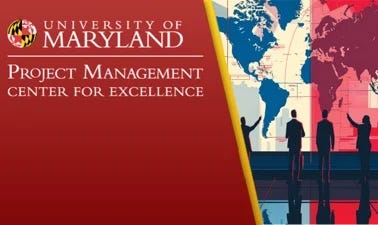1) It's no big thing, it's a small thing, what... people... think
NYT: We Don’t See What Climate Change Is Doing to Us
Op-ed by R. Jisung Park promoting his book, Slow Burn.
Lots of good points made.
The lede:
Many of us realize climate change is a threat to our well-being. But what we have not yet grasped is that the devastation wreaked by climate change comes not just from headline-grabbing catastrophes but also from the subtler accumulation of innumerable slow and unequal burns that are already underway — the nearly invisible costs that may not raise the same alarm but that, in their pervasiveness and inequality, may be much more harmful than commonly realized. Recognizing these hidden costs will be essential as we prepare ourselves for the warming that we have ahead of us.
Point being, the shift to adaptation is on.
He starts with things like workplace danger due to heat, which will be a very big deal as companies are forced into either AC-ing large facilities or pushing individual-body cooling systems worker by worker. Otherwise, there will be immense costs in both productivity and engendered health damage.
Climate change is also going to damage us as a society:
A growing body of literature links temperature to cognitive performance and decision making. Research shows that hotter days lead to more mistakes, including among professional athletes; more local crime; and more violence in prisons, according to working papers. They also correspond with more use of profanity on social media, suggesting that even an incrementally hotter world is likely to be a nontrivially more irritable, error-prone and conflictual one.
Anything that damages human adults, of course, does worse things to smaller humans (kids). Their margins of error are smaller and, when transgressed, come with more rapidly profound repercussions.
The underlying issue to address:
At present, our social and economic systems are not well prepared to adjust to the accumulating damage wreaked by climate change.
Bingo!
The shift to adaptation is not surrender nor does it require a diminution of mitigation; it’s simply embracing an inescapable future that will increasingly challenge us climactically for a solid half-century or so.
Per my book, there is a tolerable, new normal on the far side of that half-century, and mitigation pursued today preserves that far-better-than-worst-case future. Still, the journey from here to there is going to be challenging. The sooner we embrace that reality, the better and shorter that journey will be.
Solid piece.
2) Ixnay on the dengue
SCIENTIFIC AMERICAN: A Dengue Fever Outbreak Is Setting Records in the Americas
From Scientific American:
At least 2.1 million people in North and South America have been infected this year with dengue — a record-setting figure that scientists attribute in part to climate change.
The Pan American Health Organization says there have been about 2.1 million confirmed cases of the potentially fatal disease in the Americas since January. That’s already more than the record-setting mark of 2 million confirmed cases for all of 2023.
And this year’s figure could be much higher. As many as 5.1 million people may have been infected in North and South America, according to the Pan American Health Organization, the United Nations agency in charge of international health cooperation in the Americas.
We’re clearly looking at a poleward vectoring of a disease, just like we see species all over the world moving up in elevation/latitude. So this is very much tied to climate change’s remapping of the world’s climes.
Warmer winters don’t kill off enough of the dengue-carrying mosquitos. More torrential rains facilitate their breeding (e.g., all that standing water), as do warmer temperatures. Plus, when it’s hotter people tend to be outdoors more, increasingly exposure.
The trend lines are clear:
The number of dengue cases in North and South America has exploded over the past several decades. Dengue cases in the Americas are roughly five times higher in the 2020s than in the late 1990s.
So, this is how it gets very real for Americans:
But this year, health experts worry dengue could hit the lower 48 hard.
“If a series of heat waves also come to the U.S., it can augment transmission,” Barcellos said.
Dengue in the US. Think about it. That’s climate change changing our everyday reality.
Florida, Texas, Arizona … have all seen little outbreaks in the recent past. Now, we’re set up for a serious transmission “explosion,” said one expert.
It’s this kind of stuff that makes our changing climate that much more real to individuals.
As I say in America’s New Map:
Pragmatically speaking, climate change is most easily grasped like real estate, where the three most important rules are location, location, location. Climate change transforms our planet location by location, taking things long associated with one region and moving them somewhere different. What is happening may not seem unprecedented to you, but where it is happening should.
3) Librarians are good/evil (pick only one, like the Nazis did)
WAPO: Red states threaten librarians with prison — as blue states work to protect them
I have an older brother who ran a library system in northern Wisconsin for many years. He was hounded out of his position by a local conservative with great wealth and a willingness to throw it around. Sad to say, my brother was relieved that his retirement age offered him a way out of the growing maelstrom.
That’s where things stand in America right now: when in doubt, blame the librarians, or the teachers, or the social workers. It is bizarre and absurd and very sad: conservatives trying to turn back our cultural “clock” to some less equal past where “troublesome” ideas and people were more easily and systematically oppressed and repressed.
You just sort of wish these people would go Amish (OG White Christian Nationalism) and drop off the face of society.
Instead, they target, target, target their rage about the “betrayed” present and their existential fears of the future. The American ideal is leaving them behind, moving as it always does toward some more open pursuit of happiness — a trajectory they want to crash (hence their fantasies of race wars, civil wars, insurrections, End Times disasters, etc. that will take us all back to some “golden age” or “simpler past”).
Books being banned (sometimes literally burned) and librarians facing jail time: the comparisons to Nazi Germany write themselves.
The Nazis targeted librarians and books that were deemed "dangerous" or "un-German.” They implemented book bans and confiscated books from libraries, moving them to restricted Nazi research institutes where they were only accessible to trusted adults. Books on topics like sexuality, democracy, and Marxism were removed from public access.
Nazi librarians were tasked with combing through the seized books from Jewish, Marxist, and left-wing libraries.
The Nazis saw books as weapons in the war of ideas and wanted to keep German cultural life pure from all harmful and undesirable literature — namely, anything that did not align with their nationalist, racist, anti-Semitic, and anti-democratic ideology.
With our would-be German dictator running for office again, attention must be paid to this past, because it can happen here — and is already underway in certain Red States.
4) “The past is no longer a guide to the future.”
WAPO: Earth’s record hot streak might be a sign of a new climate era
NYT: Drought Pushes Millions Into ‘Acute Hunger’ in Southern Africa
NATURE: Climate models can’t explain 2023’s huge heat anomaly — we could be in uncharted territory (h/t Bruce Whitehill)
A lot of climate scientists aremlooking at West Africa’s recent record-breaking heat wave and seeing the future of what I call Middle Earth (lower latitudes stretching 30 degrees north and south of the equator).
From WAPO:
The historic heat wave that besieged Mali and other parts of West Africa this month — which scientists say would have been “virtually impossible” in a world without human-caused climate change — is just the latest manifestation of a sudden and worrying surge in global temperatures.
Do not look for some easy out:
What happens in the next few months, said Gavin Schmidt, director of the NASA Goddard Institute for Space Studies, could indicate whether Earth’s climate has undergone a fundamental shift — a quantum leap in warming that is confounding climate models and stoking ever more dangerous weather extremes.
But even if the world returns to a more predictable warming trajectory, it will only be a temporary reprieve from the conditions that humanity must soon confront, Schmidt said. “Global warming continues apace.”
The story out of Southern Africa is just as bad (drought).
Get a sense of the complimentary (in a bad way) throughlines here (from the NYT story):
An estimated 20 million people in southern Africa are facing what the United Nations calls “acute hunger” as one of the worst droughts in more than four decades shrivels crops, decimates livestock and, after years of rising food prices brought on by pandemic and war, spikes the price of corn, the region’s staple crop.
Malawi, Zambia and Zimbabwe have all declared national emergencies.
It is a bitter foretaste of what a warming climate is projected to bring to a region that’s likely to be acutely affected by climate change, though scientists said on Thursday that the current drought is more driven by the natural weather cycle known as El Niño than by global warming.
Its effects are all the more punishing because in the past few years the region had been hit by cyclones, unusually heavy rains and a widening outbreak of cholera.
Remember Gaia Vince’s “four horsemen of the Anthropocene: fire, heat, drought, flood.
The sense of leaving behind the known historical world and entering something unpredictable and alien is palpable. This from Gavin Schmidt (h/t Bruce Whitehill):
When I took over as the director of NASA’s Goddard Institute for Space Studies, I inherited a project that tracks temperature changes since 1880. Using this trove of data, I’ve made climate predictions at the start of every year since 2016. It’s humbling, and a bit worrying, to admit that no year has confounded climate scientists’ predictive capabilities more than 2023 has.
For the past nine months, mean land and sea surface temperatures have overshot previous records each month by up to 0.2 °C — a huge margin at the planetary scale. A general warming trend is expected because of rising greenhouse-gas emissions, but this sudden heat spike greatly exceeds predictions made by statistical climate models that rely on past observations. Many reasons for this discrepancy have been proposed but, as yet, no combination of them has been able to reconcile our theories with what has happened.
So what’s the answer? Basically, getting in touch with climate throughlines (to coin a term):
Much of the world’s climate is driven by intricate, long-distance links — known as teleconnections — fuelled by sea and atmospheric currents. If their behaviour is in flux or markedly diverging from previous observations, we need to know about such changes in real time. We need answers for why 2023 turned out to be the warmest year in possibly the past 100,000 years. And we need them quickly.
But here’s the scary quote from Schmidt (from the WAPO piece):
“What if the statistical connections that we are basing our predictions on are no longer valid?” Schmidt said. “It’s niggling at the back of my brain that it could be that the past is no longer a guide to the future.”
That is scary.
5) Xi Jinping: China’s biggest problem or climate visionary?
NYT: Xi Thinks China Can Slow Climate Change. What if He’s Right?
THE ECONOMIST: The great green rivalry — Chinese green technologies are pouring into Latin America
Regular readers know I am pretty down on Xi Jinping, actually viewing him and the CCP itself as the biggest threat to China’s future per the standard logic that monopolies are great at building things but markets are better at running them.
The CCP did a great job of China’s rise, but, now that it is risen, the lack of faith in markets and the rejection of political pluralism (when it is most needed) essentially dooms China’s trajectory to a certain extent: Beijing just won’t be able to make the necessary changes to allow for the nation’s maximal rise.
Is that a good thing for the US? Sort of.
America would still do better with a highly competitive but slowly pluralizing Chinese polity, as would Asia, as would India, as would the world.
But that trajectory requires a confident China, not the scared, paranoid, defensive China we have under Xi’s increasingly numbifying grip.
A glass-half-full argument (which I myself offer in America’s New Map is that China is playing a long game with the Global South, looking to lock in all sorts of regions (and that emergent majority global middle class) into its influence networks (5G—>IoT—>AIoT as the information/surveillance route).
Then there’s the Belt and Road Initiative, and then there’s China’s ambitions to dominate green energy technologies. In sum, three massive, interconnected bets being placed by Xi.
Do I see him having the wisdom to pull it off? No, I do not.
Would a return to the Generations model of leadership (new generation of leaders every ten years) increase China’s odds of success? Absolutely.
But I don’t see that happening, and so Xi remains more problem than prophet, more hindrance than hero, more dictator than deliverer.
And, frankly, that’s not the worst news for the US.
6) Virtual boy meets virtual girl
HBO: We Met in Virtual Reality (2022 documentary/animation)
My Gen Z son and student of film made me sit through this one, and I’m glad I did.
It’s an eye-opener that tracks with my America’s New Map thread entitled: Thread 40 — Winning the Twenty-First Century: Citizenship Is About Identity, and Identity Is About to Change
My argument:
Here we must account for the onrush of the metaverse: an evolving iteration of today’s internet that will be home to all manner of virtual worlds within which users can interact with computer-generated environments and other users. To the extent the real world increasingly disappoints younger generations—particularly in diminishing their sense of national pride and citizenship—we should expect these digital natives to seek something better (community, belonging, identity, etc.) in the metaverse—to include the forging of new forms of political allegiance.
This Ready Player One outlet has been around for a while. Hell, I gave a lecture on The Pentagon’s New Map back in 2005 at Second Life. I was told then that I was only the second author to ever speak there.
The metaverse (or whatever you want to call it) continues to grow as an alternative identity space that compliments, and competes with, regular life, and this documentary deftly explores the intense emotional power that can be achieved there — amidst the apparent and openly embraced escapism from a less-than-kind world.
Really worth watching. First doc ever shot entirely within a virtual reality.
It is easy to trivialize this stuff, but it is anything but trivial.
7) More dispatches from the Military Singularity
WAPO: Drones are crowding Ukraine’s skies, largely paralyzing battlefield
WAPO: Do Tanks Have a Place in 21st-Century Warfare?
FORBES: The Russian Navy Had Three Giant Be-200 Flying Boats. Then Ukrainian Drones Swarmed In.
FORBES: Ukrolancet Drones Blitz Russian Air Defenses
FOX NEWS: Ukraine's 1-ton payload drones can help retake Crimea as Kyiv seeks to destroy bridge: report
Per my essay on India’s Economic Times — Insights platform on Friday, the evidence continues to accumulate.
The first WAPO piece describes a battlefield where:
So many drones patrol the skies over Ukraine’s front lines — hunting for any signs of movement — that Ukrainian and Russian troops have little ability to move on the battlefield without being spotted, and blown up.
That is a post-human battlespace emerging: My primary job as infantry? That would be not being seen and killed by drones, sir!
A drone-drenched battlespace so dangerous that, per the second WAPO piece, the world’s best tank (US Abrams) is considered increasingly vulnerable.
When a battlespace becomes too dangerous for the world’s best tank, that is saying something.
Meanwhile, Russia is taking it hard: super-planes blown up by drones, air defense systems being blown up by drones, and their highly symbolic and logistically crucial Crimean bridge being targeted by drones.
One senses a pattern here …
8) I can do this all day
NYT: China Feels Boxed In by the U.S. but Has Few Ways to Push Back
DEFENSE NEWS: US Army deploys midrange missile for first time in Philippines
My continuing point here: China, through its behavior and force build-up, is inadvertently building its own anti-Beijing alliance throughout East and South Asia.
All we have to do is keep selling that alliance arms.
Not that hard, and thus not really our — and ours alone — “pacing threat.”
9) Ice Station Zebra
WAPO: In the Arctic, American commandos game out a great-power war
The best way to avoid a war is to be ready to wage one — an oldie but a goodie.
Here, the primary “badass” opponent is the environment itself, so it only makes sense that we send our best badasses to take it on:
America’s Special Operations forces are in the midst of a major transformation. As the powerful militaries commanded by Russia and China compete with the United States for dominance in the resource-rich Arctic, the Pentagon has dramatically expanded its focus on what a war would look like here in one of the planet’s most treacherous settings — and how its most advanced units could be brought to bear on a direct threat to the U.S. homeland or to NATO allies who inhabit the coldest climes of Europe.
I’m a grand strategist and I approved this commercial:
The Arctic, warming four times faster than the rest of the world and opening to commercial and military activity like never before, is evolving rapidly and compelling the Pentagon to keep pace, officials say, creating the potential for competition and conflict among Washington, Moscow and Beijing.
You don’t want to be the last person to the party, so this is the good kind of covering all the bases — suitably proportional.
Lots of cool pix here, with a solid map:
Very much like the one Juraj Mihalik and Tom Zorc built for America’s New Map:
10) The Taiwan scenario intelligently analyzed
WAR ON THE ROCKS: China Is Battening Down for the Gathering Storm over Taiwan
A rundown of why Xi feels pressured to do something. The opening:
Chinese war drums beat on as pundits hotly debate if or when Beijing will try to seize Taiwan by force. There is no apparent countdown to D-day for initiating a blockade or invasion, but major strategic indicators clearly show that General Secretary Xi Jinping is still preparing his country for a showdown. Developments under way suggest Taiwan will face an existential crisis in single-digit years, most likely in the back half of the 2020s or front half of the 2030s.
Xi has given every indication that he views reunification as the crowning achievement of his reign. That suggests intent.
China has certainly achieved a conventional military overmatch here. That speaks to capability.
Those two elements suggest a “go” and yet, America and its allies continue to introduce just enough uncertainty into the scenario as to stay Xi’s hand — assuming he is reasonably rational on the subject (always hard to tell from outside and as 70yo prez-for-life approaches the end of his life).
I have no doubt that China can wage a major-league attack on Taiwan. I just also believe that the combined resistance will be enough to deny a quick and decisive victory.
We may assume Xi and the CCP can survive that outcome for some good long stretch, like Putin has, but that is a big assumption.
I personally view the scenario as the perfect downfall for Xi. The odds of China pulling off a totally high-end military effort on its first try in about half a century are not good. The response signal from the world would be profound — far outweighing the response to Russia on Ukraine. The internal response would be muted at first by a spike in nationalism but then turbocharged by the sense of failure and betrayal by an incompetent leadership (Bad Emperor).
As such, I do not fear this scenario; I just don’t see how Xi can win.
11) This is globalization reversed … in the worst way
REUTERS: World Bank sounds alarm on 'historical reversal' of development for poorest nations
The great achievement of globalization has been the steep and unprecedented decline in the share of the world’s population living in abject poverty (from about 1/2 in 1950 to about 1/10th today) and the emergency of a global majority middle class.
Now, with the Global North turning on that Golden Goose out of fears of intra-North competitions, the surest loser is easily the Global South:
Half of the world's 75 poorest countries are experiencing a widening income gap with the wealthiest economies for the first time this century in a historical reversal of development, the World Bank said in a report on Monday.
The differential between per capita income growth in the poorest countries and the richest has widened over the past five years, according to the report.
"For the first time, we see there is no convergence. They're getting poorer," Ayhan Kose, deputy chief economist for the World Bank and one of the report's authors, told Reuters.
As the North grows more protectionist with one another, they simultaneously offer the Global South’s poorest nations less aid. The combo is deadly and extremely short-sighted — an ounce of prevention being worth a pound of cure.
12) Conceptualizer! Conceptualize thyself!
Dale Moore is a friend and colleague who has spent many years working innovation in the national security space.
He’s also a deep thinker on deep thinking, and recently taped this TEDx talk that I enjoyed immensely. Being a born conceptualizer myself, I found it helped me conceptualize that aspect of my life/career/personality, and so I wanted to share it here.
Sign up to take the America’s New Map MOOC (Massive Open Online Course) at edX







